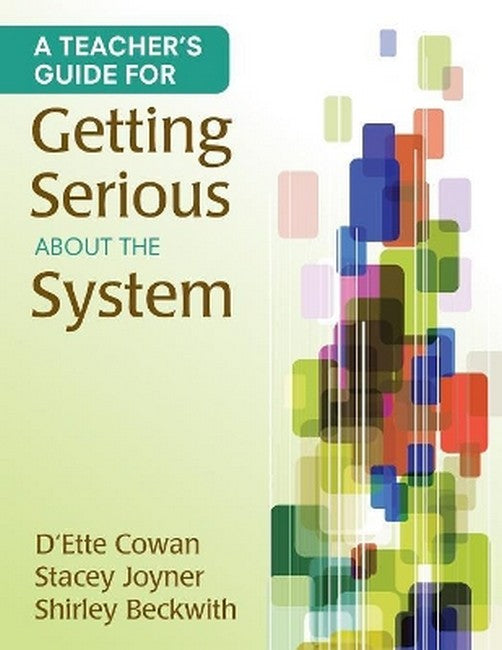Before retiring from SEDL in October, 2010, D'Ette F. Cowan led Texas Comprehensive Center efforts to assist state and intermediate agencies in providing high-needs districts and schools with technical assistance that is systemic in nature. In her 12-year career at SEDL, she also assisted low-performing districts and schools throughout a five-state region to improve student learning, and investigated strategies for transforming schools into professional learning communities. Currently, Cowan serves as a consultant to SEDL on a variety of projects. As one of the researchers and authors of Working Systemically in Action: A Guide for Facilitators, she has had first-hand experience in helping district and school leaders apply a systemic approach to improve learning outcomes for students. Her study of professional learning communities over her career has included conducting and applying research and presenting findings at conferences and in books and journals. She has authored chapters and articles in Demystifying Professional Learning Communities: School Leadership at Its Best; SEDL Letter; Journal of School Leadership; and Learning Together, Leading Together. Prior to joining SEDL in December 1997, she served as a junior high school teacher and an elementary school principal. Her continuing research interests include leadership for change, systemic improvement, and professional learning communities. Stacey Joyner is a Program Associate at SEDL-a nonprofit education research, development, and dissemination corporation based in Austin, TX. She participates in efforts to build state education staff capacity to serve districts and schools. She is the former editor of the USDE's Reading First newsletter The Notebook, and former editor of the Texas Comprehensive Center's newsletter Texas Focus. She is co-author of SEDL's Working Systemically in Action, a comprehensive process for school improvement. Prior to joining SEDL, Ms. Joyner served as the Reading Coordinator for the Idaho State Department of Education. She has 11 years of teaching experience. She has served as a reading specialist and teacher trainer for the Clark County School District in Las Vegas, Nevada. Ms. Joyner holds a BA in Elementary Education from Idaho State University and an MEd in Curriculum and Instruction from the University of Nevada at Las Vegas. She is currently a doctoral student at the University of Texas at Austin. Shirley Beckwith is a Communications Associate with SEDL's Texas Comprehensive Center (TXCC). She provides editorial review of training materials and resources used in meetings hosted by the TXCC and prepares materials for submission to national evaluators. She also provides and reviews content for the TXCC Web site. She has been involved in several revisions of the Working Systemically approach, including the 2008 Working Systemically in Action: A Guide for Facilitators and a conversion of the process into a scripted training manual for school support teams. Prior to joining SEDL Ms. Beckwith worked for several years at the University of Texas LBJ School of Public Affairs as the coordinator and researcher for the Guide to Texas State Agencies. Ms. Beckwith has a master's degree in Library and Information Science.
Request Academic Copy
Please copy the ISBN for submitting review copy form
Description
SEDL's Working Systemically Approach: A Process Grounded in Research The Working Systemically Approach: Levels, Components, and Competencies Levels of the System Components of the System Competencies for Working Systemically The Working Systemically Approach in Action Working Systemically Phases Phase I: Understanding Systemic Improvement Study the Approach Collect and Analyze Preliminary Data Present the Approach at the School Level Commit to Systemic Improvement Phase II: Analyzing the System Form the District and School Leadership Teams Begin the Comprehensive Needs Assessment Conduct a Gap Analysis (reference to System Examination Tool: Appendix 1) Begin the Process at the School Level Formulate Problem Statements Describe the Ideal State Review District Initiatives Continue the Process at the School Level Phase III: Planning Action Investigate Research-Based Practices Explore the Professional Teaching and Learning Cycle (PTLC) Review Progress Made to Date and Existing Plan Develop a District Improvement Plan (reference to Leadership Self-Assessment Tool: Appendix 2) Formalize and Communicate the District Plan Develop School Improvement Plans Phase IV: Taking Action and Monitoring Progress Implement and Monitor the Improvement Plans Provide Leadership for the Improvement Work Address Unique Challenges as They Arise Phase V: Assessing and Reflecting on Outcomes Analyze and Reflect on Evidence of Implementation and Impact Decide on a Focus for Continuing the Improvement Work Recognize Work, Progress, and Accomplishments Getting Serious About the System: What It Takes

